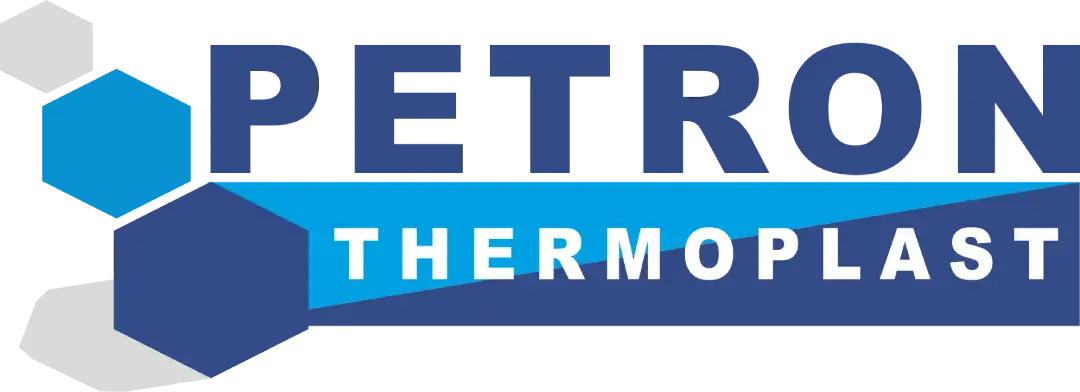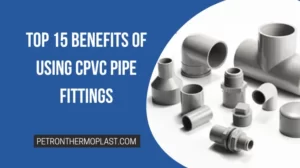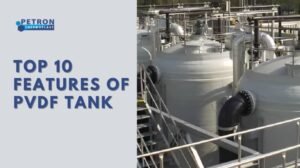Top 5 Significance of The Georg Fischer Dealers in India And Their Environmental Impact
Although it has existed for many years, piping engineering is a relatively new engineering science. Pipes are essential for any plant, as are the people who assist in developing plans and designs to create a sufficient piping system for a facility. Here, we emphasise piping technology’s significance and piping engineers’ significance and how the Georg Fischer dealers in India help industries.
Piping system:
It is critical to any process plant; it must be designed with care and precision. The ability of a plant to transport the fluid through pipes to various equipment that functions collectively greatly influences its efficiency. A systematic examination of various design methods is required to create a piping system. Many standard practices for piping systems have emerged in recent years.
Today, piping systems are regarded as one of the major engineering sciences. As a result, every engineering and construction firm needs qualified piping engineers to design piping systems.
Studies on environmental impact:
PE and PVC Life Cycle Assessments (LCA’s) have been performed to evaluate the climatic impacts linked with all phases of their product life: from the extraction of raw material to materials processing, manufacture, and delivery to final use, repair, upkeep, and disposal or recycling. For instance, the Life Cycle Assessment of PVC Water and Sewer Pipe and Comparative Sustainability Analysis of Pipe Materials was published in 2017.
According to the findings of this study, PVC pipes provide both environmental and economic benefits for sewage and water connectivity for utility companies and governmental projects. According to studies, PVC and PE pipes are improved and eco-friendly alternative solutions to pipes made of other materials such as concrete or iron.
According to studies on PVC or PE, plastic pipe systems have basic advantages in creating sustainable piping for sewage and water supply infrastructure: they are reusable and recyclable, durable and long-lasting, and corrosion resistant. PVC and PE pipes are expected to have more than 100 years.
Adapters and transitions
Adapters and transitions are crucial for connecting plastic pipes with metal; metal could be added with more than two plastic pipes. This range delivers dependable connections while providing considerable assembly flexibility and covers a variety of materials.
Bends and Elbows
If you look for the utility of bends and elbows in pipe fittings, they are one of the most crucial ones to be considered. Pipes may readily change direction with the help of bends and elbows, which are crucial fittings. The wide selection of options offers a variety of materials and varying degrees of curvature to match your piping system conveniently.
Caps and End Capes
Caps and end capes are one of the most popular concerns for pipe fittings. A piping system’s flow direction is stopped by caps, which offer a tight seal. To meet your demands, GF Piping System caps come in various sizes, plastic types, and malleable iron. A pipeline installation’s pressure testing is made easier by temporary caps.
Certain benefits of the proper piping system:
A proper piping system can benefit industries if installed with appropriate planning. The outcome helps and reduces the burden of over budget and frequent maintenance.
- Corrosion resistance property:
One of the most serious issues with metal piping systems is corrosion. It may happen both inside and outside the pipe and has an impact on hydraulic efficiency. Many cities are treating their water to reduce rusting and pitting. Others choose costly alternatives such as cathodic protection, plastic coating, or sleeving to extend the service life of the pipes while incurring increased servicing and production costs.
Unlike many traditional pipe materials, plastic pipes do not rust and have excellent chemical resistance. Most strong acids, alkalis, and aqueous solutions, as well as brine, mineral oils, fats, and alcohol, are resistant to them. It is that dangerous materials are unlikely to enter water supplies.
Plastic pipes’ corrosion resistance also ensures a constant water flow rate throughout their lifespan, ensuring that the energy necessary to pump water through the system does not raise as the pipeline ages. Plastic pipes from the no. 1 Georg Fischer dealers in India have lower installation and upkeep costs, according to engineers. Plastic is already the preferred material for piping infrastructure in many municipalities, such as Canada and the United Kingdom.
- Energy conservation:
PVC and PE pipes require less energy to produce than steel, copper, ductile iron, or aluminium pipes. On the other hand, energy-intensive zinc implementations are required to galvanise steel and ductile iron pipes. An additional energy-intensive cement lining is frequently inserted to increase the corrosion resistance of ductile iron pipes.
Plastic pipes also save energy because they require less transport, handling, installation, and maintenance. Because PVC and PE pipes are eight times less dense than steel pipes, heavy lifting equipment is not required to move them while installing.
- Recycling options:
When plastic pipes end their service life, 100 years or more, they can be collected, recycled, and reworked into other PVC products. They can be recycled and reused at any point in their life cycle, from early in manufacturing to much later in the post-industrial use stage.
PVC, for example, is reprocessed mechanically by being ground into tiny particles that are then heated into a plastic material for factory use or chemically by being reduced to its molecular elements before being fed into the production of new PVC or being utilised as energy production recovery. This reusability effectively reduces waste from the manufacturing line and reduces the overall strain of waste disposal of PVC piping. It also reduces the environmental effect of PVC over time.
- Easier installation:
Plastic pipe systems can also be installed using ‘trenchless technology,’ causing far less disruption to traffic flows and the surroundings than traditional systems. Traditional piping system installation typically begins with a trench dug in the road, causing significant traffic and ecological disruption. On the other hand, a horizontal directional drilling machine drills a continuous borehole beneath the ground for trenchless installations. The plastic pipe is attached to the drilling head and pulled back through the hole once it reaches the end of the borehole.
Plastic pipes’ flexibility, blended with their tensile durability and abrasion resistance, make them an ideal choice for trenchless installation.
- Lower risk of leakage:
Leakage risk is reduced: Up to 30% of all plumbed water is lost globally due to pipe leaks in a system. Pipe failure is the primary cause of this. Plastic pipes, whether PVC or PE, are adaptable and do not crack as readily as metal or concrete alternatives. They are hardly affected by seismic activity and are sufficient to withstand vehicle loading displacements. Their inherent corrosion resistance makes them less vulnerable to leaks inside the pipe.
Plastic pipes also mean minimal joints to concrete, iron, or metal pipes. PE pipes, for instance, can be manufactured, transported, and installed in lengths that metal pipes cannot. It means allowing plastic pipeline tubes to be installed with up to two or three times fewer joints than traditional pipelines. Furthermore, because PE pipe lengths are joined together using fusion-jointing processes, they are much less likely to rupture.
Petron Thermoplast provides the best quality piping system to its clients. We make affordable and long-lasting engineering plastic pipes. If you need to install pipes, you can browse our product categories as we’re the Georg Fischer dealers in India.




